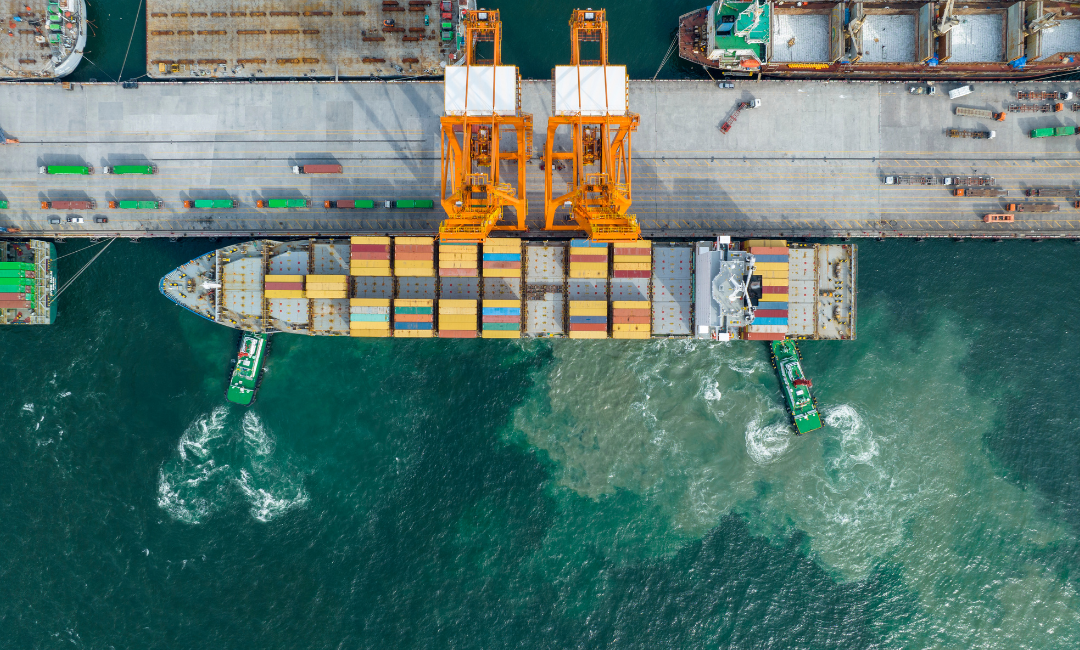Maritime shipping is the cornerstone of global trade, playing a critical role in the movement of goods and commodities across vast oceans. From ancient times to the modern era, the world’s dependence on this form of transport has only grown. As the primary method of moving large quantities of goods internationally, maritime shipping remains indispensable in connecting countries and markets, supporting economies, and enabling international trade. Companies like NORTHSEA AGENCY, a leading player in maritime logistics, ensure efficient, reliable shipping solutions. Their expertise in navigating complex shipping routes, managing cargo, and offering cost-effective services makes them an essential partner for international trade. Here we talk about the importance of maritime shipping in supporting the global economy and international trade.
Scale and Scope of Maritime Shipping:
Maritime shipping enables about 80–90% of import/export cargo by volume, thereby making it the most crucial means of transport. Oil and other minerals, metals, food, and other agricultural products, as well as manufactured goods such as electronics and automobiles, are shipped on the sea in millions of tons. Global hinterland trade with major coop channels, including the Suez Canal, Pama Canal, etc, bears this giant flow to help link the world market. It has improved enormously the global maritime logistics network infrastructure, adding more to its efficiency and coverage.
Economic Importance of Maritime Shipping:
The maritime shipping industry plays an important role in the global economy since it ensures the smooth carrying out of cross-border trade and economic activities. It is directly the source of millions of employment opportunities for shipping, port handling, and logistics but at the same time has positive externalities on other sectors such as manufacturing, retailing, and energy. This paper argues that through the provision of an efficient and inexpensive means of transporting cargo, maritime shipping enables countries to import raw materials, export their products, and participate in the global network of supply. A well-organized company of maritime shipping is crucial for the right functioning of these processes and the reception of products in an agreed time.
Efficient Transportation and Cost-effectiveness:
One of the biggest advantages of maritime shipping over most other methods of freight transport is that it is relatively cheap, especially for large and heavily tangible cargo. Shipment of bulky loads through the water is cheaper than through the air and carries more efficiency than road and rail transport systems. Such innovations, like the general ones of containerization, have also enhanced marine transport by expanding its productivity, precision, and sequence of shipping. It also yet reduces the cost of producing and transporting the products, thereby reducing the cost for both the producers and consumers.
Role in Globalization:
Sea-borne trade has remained among the leading causes of globalization. In its ability to allow the transport of products and raw materials from one continent to another, shipping has encouraged countries to specialize in production and increase exporter capabilities. Countries that heavily invest in import and export business discover enormous benefits in maritime business. In addition, through globalization, the so-called developing countries are allowed to penetrate world markets and consequently promote the growth of their economy and cushion poverty, usually with the assistance of an efficient maritime shipping company.
Environmental Impact and Sustainability Efforts:
Although sea transportation is the least expensive way of transporting high volumes of goods, it has its environmental inconveniences. The industry is the largest contributor to carbon emissions and pollution of the world’s seas. Nonetheless, some international organizations, such as IMO, have embarked on the reduction of pollution within the industry. New tougher rules, cleaner technologies, and financing for the improvement of the utilization of non-conventional fuels constitute a world plan to make global shipping environmentally responsible.
Challenges Facing the Maritime Shipping Industry:
Nevertheless, maritime shipping, which is critically important for global trading, has some problems. There is always tension about trade, political instability, and tariffs; they affect transport through changing routes. Secondly, piracy, which is particularly prevalent around the Gulf of Aden, is a security risk to the vessels. Contemporary crises like the COVID-19 pandemic have also highlighted risks in the global supply chain, including port disruptions and congestion, as problems of the industry. A well-developed maritime shipping company has the potential to bring solutions to these challenges.
Technological Advancements in Maritime Shipping:
The maritime shipping industry is changing because of technological innovations. The phenomenon of automation, digitalization, and the shift toward smart ships is in the process of changing the traditional approaches to managing the operation of ships. Blockchain, artificial intelligence, IoT, etc. are enabling better route planning, less fuel usage, and better operational efficiency in the maritime logistics industry. There are also prospects for the future where working ships that are autonomous are also under construction, which may revolutionize the ongoing maritime shipping business.
Future Outlook for Maritime Shipping:
The maritime shipping industry will remain one of the most significant segments of the global economy with the increase of trade around the world. However, the industry has to be prepared for future problems such as climate change, increasing sea levels, and the change of attitude towards environmentally friendly shipping. These two areas, innovation and sustainability policies, will be crucial factors that will help the industry to transform and continue to support cross-border trade in the future decades. About these trends, any forward-thinking maritime shipping company will have to brace itself to make certain it has a competitive advantage.
Concluding all:
Containerization is considered and correctly so to be among the most important pillars of the world economy since it facilitates maritime shipping, which is a crucial function of the worldwide economy in moving commodities through different continents. Despite current problems, further developments in the sphere of sustainability and improvement of technology will guarantee the industry’s focus on future performance in international trade. Maritime logistics, and particularly the services that seam shipping companies offer would be unthinkable in the internet-connected world that exists today.

